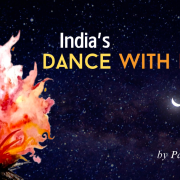Feeling happy is wonderful. Essentially, it’s what everyone strives to be. Having bubbles with happiness burst inside your belly and a smile that cannot possibly be controlled seems to be a main goal for many. You know what happiness feels like to you, so how come it’s so hard for research to say anything about such? Yes, it’s subjective, but isn’t it also universal?
In my quest to learn more about what makes people feel good, I turned to courses, blogs and books. Most notably is the fact that all of them start out by stating that there’s no definitive answer. Among things to do to improve your mood, and elements that should increase your likelihood of being happy are: organising your bed in the morning, earning above a certain income, eating healthily and being grateful. Ultimately, the bed scenario is based on a subjective classification where some have reported higher life satisfaction when having made their bed in the morning, and the case of needing a certain average income to sustain a living, as well as eating healthily and being grateful, seems to be obvious.
I completed the online course “The Science of Well Being” from Yale, like almost 4 million other people did. The interesting thing about the course is that it has insanely high rankings and positive feedback from thousands who all feel like they gained something from the course, however, only 14% state that it directly benefited their career. What are we supposed to conclude from that? Perhaps that either such a study is just more about your personal life than your work, or that the industries we work in simply don’t profit from happiness…
More interesting is the fact that the course is called the science of “well-being” rather than of “happiness”, which the instructor explained is because the foundation for happiness basically is stability and feeling good, and also, happiness is just too broad to conclude anything on. Once again, the feeling of happiness seems to be too intangible for the world of science to handle. We know from courses on social science research (think ISSR) that concepts need to be defined and measured specifically, which means that the feeling of happiness will be broken into: if you eat healthily and feel good, are satisfied with your job, have loving relations etc., but essentially not if you genuinely feel happy and when.
It seems that there is a gap between feeling good and content with life to having those irresistible bursts of happiness. I think people who are struggling can still have intense moments of happiness, and hence the claim of well-being ensuring happiness seems to be misplaced. People don’t question their feelings of happiness, as they know what it is to them, apparently such feelings just cannot be put onto paper. I realise we might have to cherish the intangible and indefinable nature of happiness, so far, and be grateful that the industries that surround us have yet to find a universal way to gain monopoly on such. Commercials sure try to convince us they already know so, but science seems to disagree, as it is so hard to measure and perhaps even different for us all.
Author: Monique Veni Jørgensen
Editor: Phoebe Elliott
Visuals by: Gabi Olenicz


